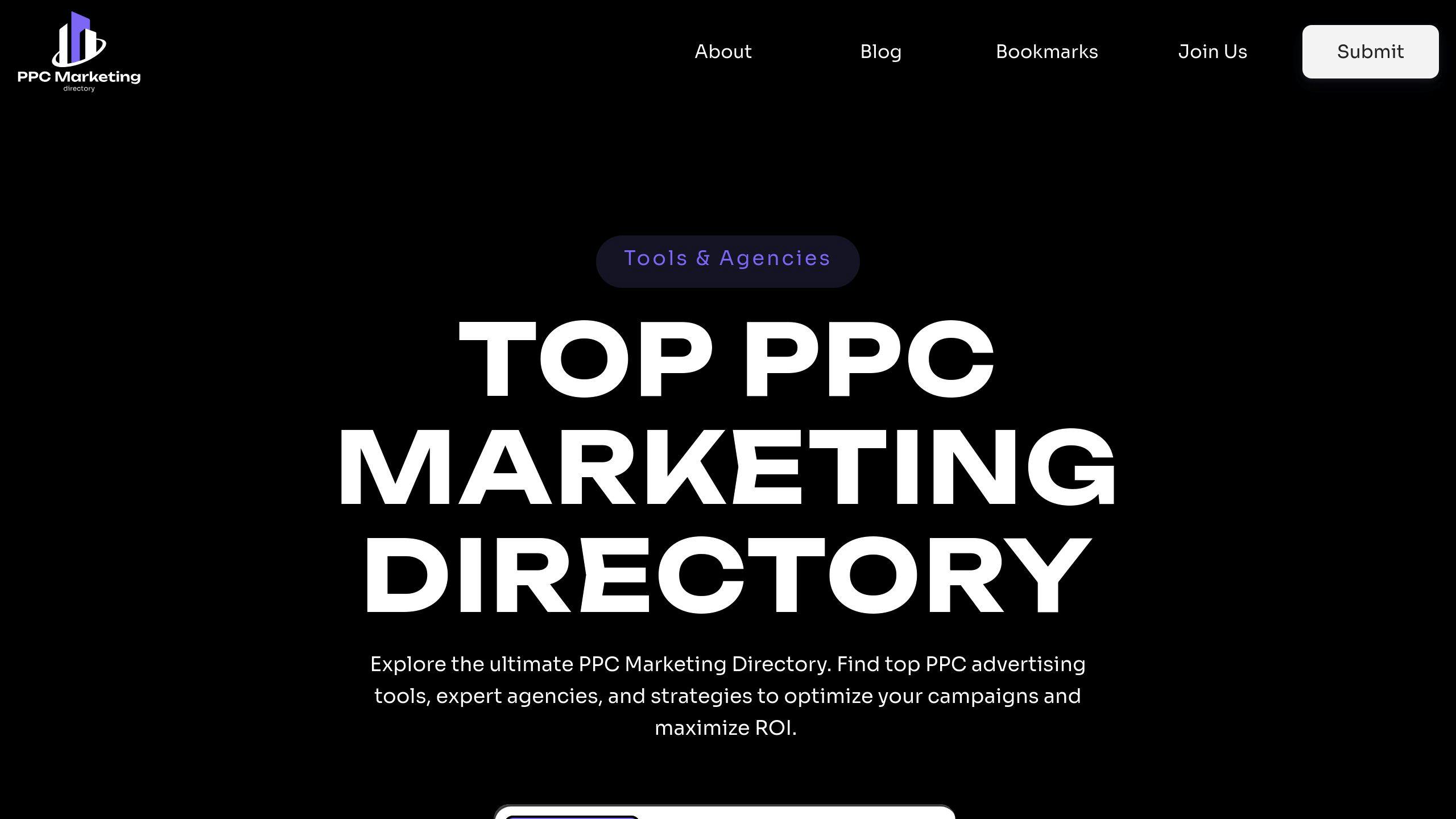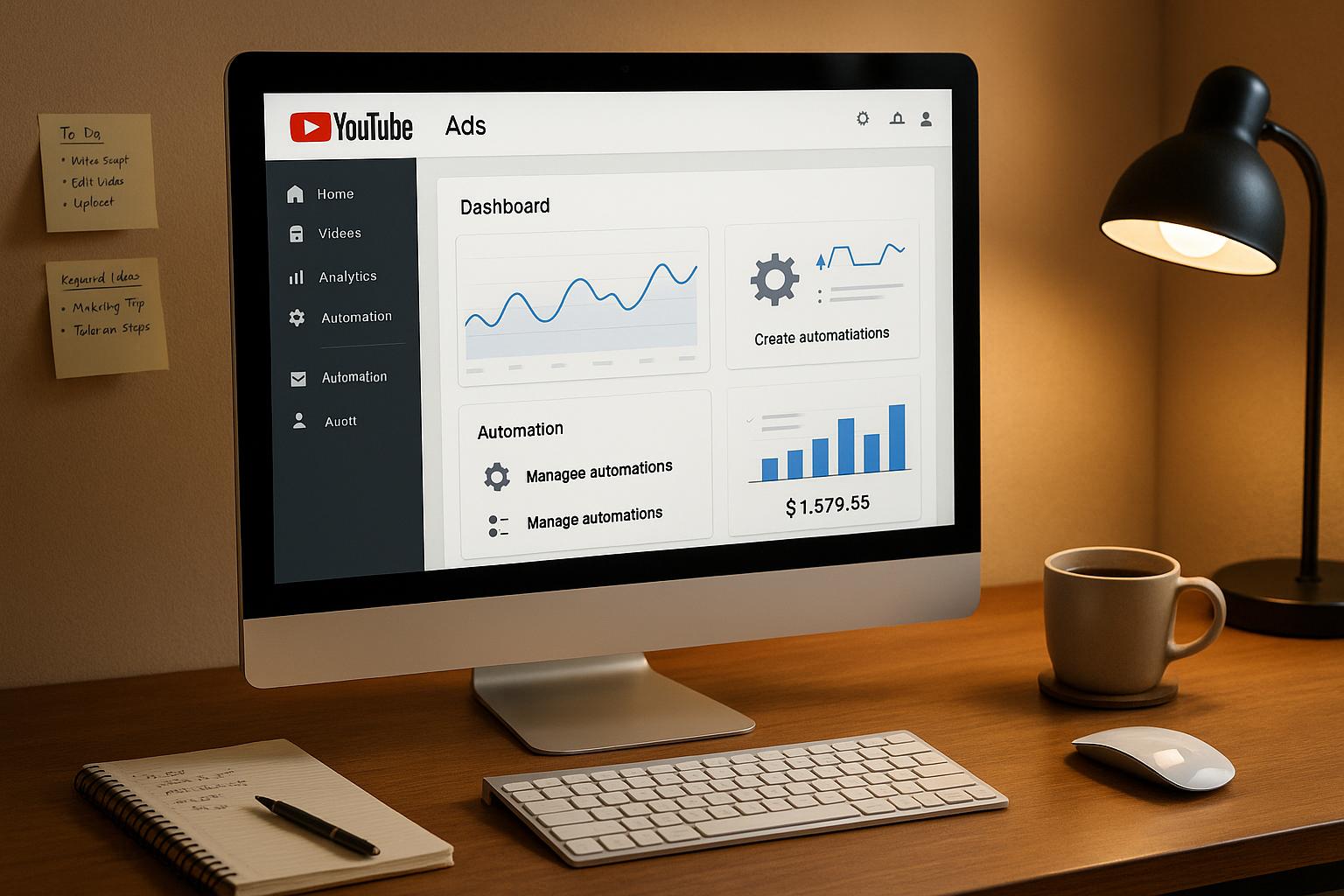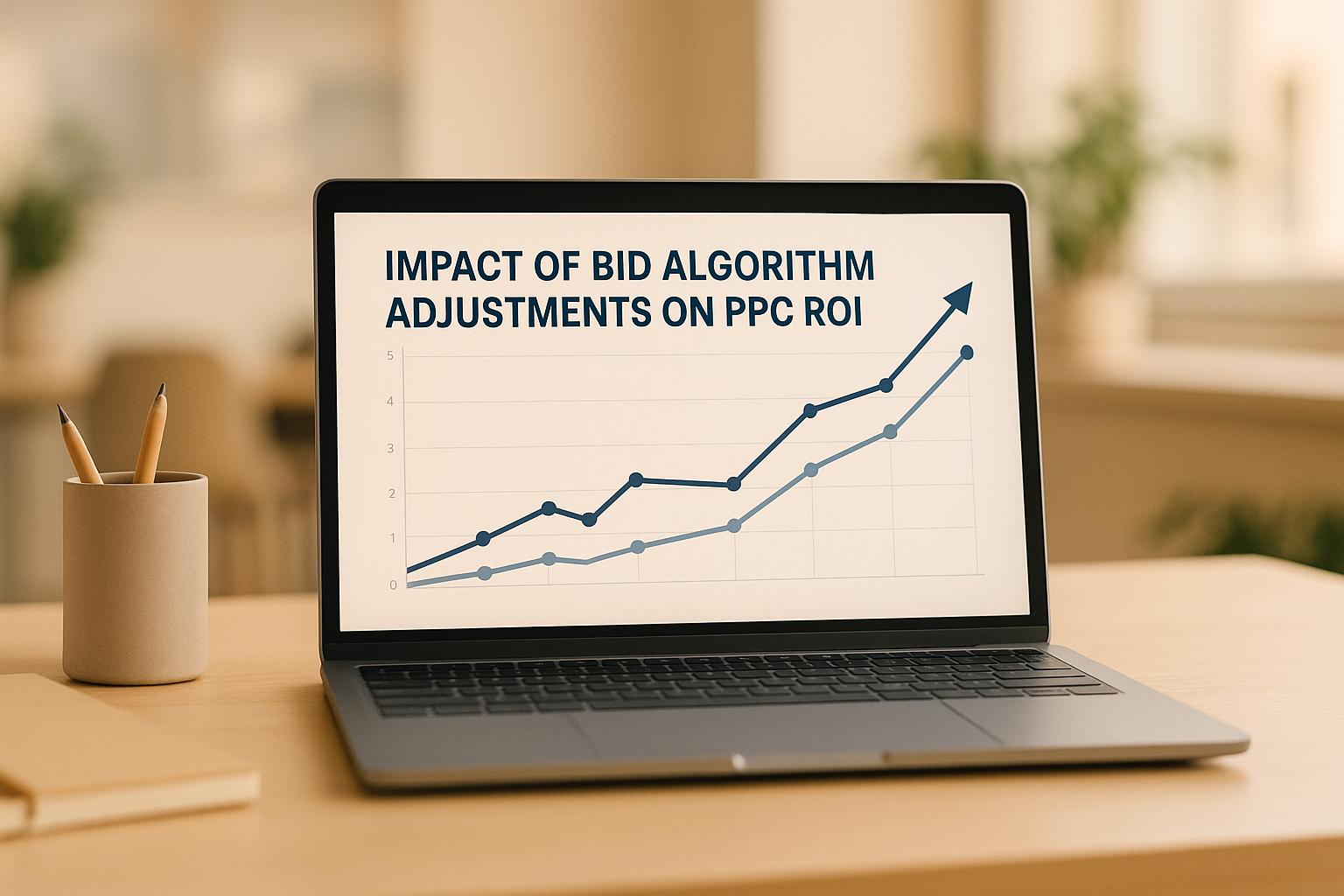Want to optimize your PPC campaigns? Start with a budget audit. Regularly auditing your PPC budgets ensures you're maximizing ROI and allocating funds effectively across platforms like Google Ads, Facebook Ads, and Microsoft Advertising.
Key Takeaways:
- Google Ads: Focus on high-intent searches by refining bid strategies and improving Quality Scores.
- Facebook Ads: Test creative elements and adjust demographic targeting to improve engagement and reduce CPC.
- Microsoft Advertising: Tailor strategies for B2B audiences, managing CPCs and refining keyword performance.
Why Audit PPC Budgets?
- Reallocate Wisely: Shift budgets to high-performing campaigns.
- Boost ROI: Analyze metrics like ROAS and CPA to improve results.
- Spot Issues Early: Identify inefficiencies before they drain your budget.
Quick Steps:
- Collect 3 months of performance data (CPC, CTR, ROAS).
- Set clear goals (e.g., reduce CPA, improve CTR).
- Use tools like dashboards and bid management software for analysis.
- Adjust budgets based on campaign performance metrics.
| Platform | Key Focus | Action Items |
|---|---|---|
| Google Ads | High-intent searches | Adjust bids, improve Quality Scores |
| Facebook Ads | Creative testing | Refine targeting, test ad formats |
| Microsoft Ads | B2B targeting | Manage CPCs, optimize keywords |
A consistent audit process (weekly, bi-weekly, monthly) ensures your campaigns stay efficient and aligned with goals. Let’s dive deeper into how to audit each platform effectively.
Steps to Prepare for a PPC Budget Audit
Collecting Performance Data and Reports
Start by gathering at least three months of data from your advertising platforms. Focus on key metrics like:
| Category | Metrics | Purpose |
|---|---|---|
| Cost Metrics | CPC, Total Spend, Budget Use | Evaluate spending efficiency |
| Performance Metrics | CTR, Conversion Rate, ROAS | Analyze campaign effectiveness |
| Quality Metrics | Quality Score, Relevance Score | Check ad relevance |
Export data from tools like Google Ads, Facebook Ads Manager, and Microsoft Advertising. These reports will serve as the foundation for a detailed audit in later steps.
Defining Audit Goals
Once your data is organized, define clear goals to steer your audit. These objectives should align with your business needs and be measurable. Focus on areas like:
- Performance Improvements: Set specific targets for CPA (Cost Per Acquisition) and ROAS (Return on Ad Spend).
- Budget Allocation: Find campaigns wasting budget or those with untapped opportunities.
Use the SMART framework - Specific, Measurable, Achievable, Relevant, Time-bound - to keep your goals actionable and focused.
Tools for Auditing
Now that you’ve set your goals, choose tools that align with your priorities. These tools can help streamline the audit process:
| Tool Type | Purpose | Features |
|---|---|---|
| Cross-Channel Dashboards | Track performance | Combine data from multiple platforms |
| Bid Management Tools | Optimize budgets | Integrate Google Ads Smart Bidding |
| Reporting Software | Visualize data | Build custom dashboards |
For a deeper dive into PPC tools, check out resources like the Top PPC Marketing Directory [1][3]. This directory provides access to platforms specializing in bid management, campaign tracking, and performance analysis.
Auditing PPC Budgets by Platform
Google Ads Budget Audit

Start by diving into Google Ads' campaign-level performance metrics. Focus on Cost Per Click (CPC), Click-Through Rate (CTR), and Return on Ad Spend (ROAS) to identify areas for improvement.
| Metric | Target Range | Action Items |
|---|---|---|
| CPC vs Conversion | Above industry average | Adjust keyword bids, improve quality score |
| CTR | Below 2% | Review ad copy, refine audience targeting |
| ROAS | Below target | Test new bidding strategies, optimize audience segments |
Pause keywords that are expensive but fail to drive conversions. These can drain your budget without delivering results.
Facebook Ads Budget Efficiency
When auditing Facebook Ads, focus on key performance areas like audience engagement, placement effectiveness, and creative performance.
| Focus Area | Metrics | Actions |
|---|---|---|
| Audience Response | CTR, Engagement Rate | Fine-tune demographic targeting |
| Placement Efficiency | Cost per Result by Placement | Shift budget to better-performing placements |
| Creative Performance | CPC by Ad Format | Test and improve creative elements |
Pay close attention to how your budget is distributed across placements. If certain placements consistently underperform, reallocate funds to those driving better results. Notably, 62% of marketers prioritize conversion tracking when making these adjustments [3].
Microsoft Advertising Budget Review

For Microsoft Advertising, the audience profile differs, so tailor your audit to these areas:
- Keyword Performance: Identify search terms driving clicks but no conversions.
- Audience Targeting: Examine demographic data to refine targeting.
- Campaign Budget Distribution: Ensure high-performing campaigns have adequate budgets.
Leverage automation for budget adjustments and monitor performance regularly. This approach helps maintain effective budget allocation and boosts overall campaign results across platforms [2][4].
Optimizing Budgets Across Platforms
Adjusting Budgets Based on Performance
A focused reallocation strategy helped cut wasted spend by 22% while increasing conversions (WebFX, 2024). Keep an eye on these key metrics when redistributing budgets:
| Metric | Recommended Action |
|---|---|
| ROAS | Allocate more budget to campaigns with ROAS above 300% |
| CPA | Decrease spending on campaigns exceeding CPA targets by 20% |
| CTR | Shift budget toward ads with higher-than-average CTR |
Using Automated Tools for Budget Management
Automation tools have transformed how budgets are managed. For example, Google Ads' Smart Bidding strategies adjust bids in real-time, helping optimize campaign performance [3].
Regular Audit Process
To ensure budgets remain efficient, set up a consistent review process. After making adjustments based on performance and utilizing automated tools, follow this schedule:
- Weekly: Track trends in ROAS, CPA, and CTR.
- Monthly: Analyze budget allocation across all platforms and evaluate competitor activity.
- Bi-weekly: Check the effectiveness of automated bidding systems.
This routine helps maintain a balanced and effective budget strategy.
sbb-itb-89b8f36
2024 PPC Audit Guide: 8 Essential Steps for Cross-Platform Budget Analysis
Conclusion: Key Points on PPC Budget Auditing
To keep your PPC campaigns running smoothly, it's critical to combine platform-specific adjustments with regular monitoring. Consistent auditing ensures your strategies remain effective and aligned with your goals.
Key Steps for PPC Budget Auditing
Successful PPC budget auditing relies on a structured process. By focusing on performance metrics and tailoring strategies to fit each platform, you can make informed, data-backed decisions that drive better results.
Leveraging Tools from Top PPC Marketing Directory

The Top PPC Marketing Directory offers tools to help streamline and improve your efforts, such as:
- Campaign management tools to fine-tune your strategy
- Bid management solutions for smarter spending
- Performance tracking software to monitor key metrics
- Landing page optimization tools for better conversions
These resources work hand-in-hand with automated budget management solutions, helping you achieve higher efficiency and better results across your campaigns.
FAQs
How do you conduct a PPC audit?
To perform a PPC audit, follow these steps:
- Use a 3-month data range, as suggested in the preparation steps.
- Compare actual spending with results for each campaign.
- Focus on three key areas:
- Ad content performance
- Quality scores
- Conversion metrics
How do you audit existing pay-per-click campaigns?
Here’s how to review and improve your PPC campaigns:
- Check bidding strategies and targeting settings.
- Adjust underperforming keywords and ad creatives.
- Shift budgets toward placements that deliver the best results.
Campaign Settings Review
Pay attention to these metrics:
- Cost per click (CPC)
- Click-through rate (CTR)
- Cost per acquisition (CPA)
- Return on advertising spend (ROAS)
Performance Optimization
Make sure to regularly evaluate:
- How well your keywords are performing and their relevance.
- The effectiveness of your ad copy.
- Whether ad extensions are being used effectively.
- If your bidding strategies align with campaign goals.
These adjustments directly tie into the budget allocation strategies discussed earlier. Use automated tools (referenced in the Budget Management section) to simplify the audit process and keep a close eye on campaign performance.


